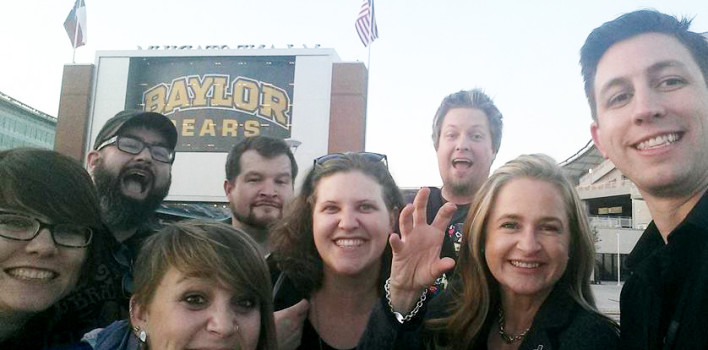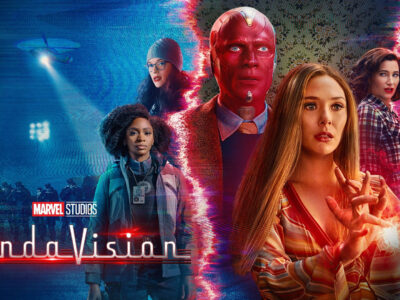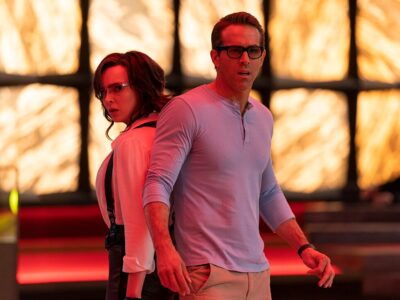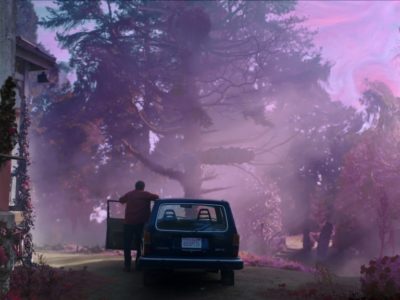#040 – What’s Gotten Into Us: Possession, Haunting, and the Christian Tradition
On this episode of the Reel World Theology Podcast:
A very special episode of the podcast. No movie review, but an awesome conversation from the Baylor Faith and Film Symposium featuring JR. Forasteros, Clay Morgan, Bryne Lewis, and Mikey Fissel. The presentation focuses on the Horror genre and asks questions about “what haunts us?”, “the nature of demonic possession”, “what we can learn about our culture through our horror”, and “where science fiction and horror intersect (or fail to).”
Download Episode 040 Here:
Reel World Theology #040 – What’s Gotten Into Us: Possession, Haunting, and the Christian Tradition
Reel World Theology on Stitcher
Baylor Faith and Film Symposium
“What’s Gotten Into Us: Possession, Haunting and the Christian Tradition in Recent American Cinema”
This panel will be moderated by Dr. S. J. Murray.
In the last 30 years, horror cinema has become largely Christianized, especially those films that feature demonic possession. Meanwhile, the Biblical tradition of possession is largely ignored by most American denominations, fearing charges of primitivism and superstition. Those that do are often blind to the abuses of power that too easily accompany the practice of so-called spiritual warfare. Our panel will discuss the Christian shift in horror cinema, exploring how film has appropriated the rhetoric and iconography of the Christian tradition. We will also consider the American culture’s continued fascination with the genre and debate what merit horror films have for those practicing within the Christian tradition and what light these films, and the popular beliefs that surround them, might shed on spiritual experience in general.
Speaker 1: Clay Morgan
Study after study affirms how haunted we are. More than three times as many people believe in the paranormal today than in the 1970s when The Exorcist movie hit theaters and forever changed the cultural definition of horror. According to a 2005 Gallup poll, forty-five percent of Americans between the ages of 18 and 29 believe in ghosts.
Cognitive scientists are becoming increasingly aware of the fundamental metaphysical outlook shared by all humans. We’re never going to stop being obsessed with the afterlife and by extension the supernatural. As Western nations continue to become post-Christian, our churches may get emptier but our Cineplexes will remain packed, and in so doing remain a central forum for some of the biggest spiritual and cultural conversations of our time. I argue that by addressing questions of evil and consistently framing the conversation in a Christian worldview, horror cinema has become a key communicator of spiritual possibilities and even realities for the large population of people identified by Baylor researchers Christopher Bader, F. Carson Mencken, and Joseph Baker as somewhere in between naturalistic skeptics and committed religious adherents.
Speaker 2: Bryne Lewis
One only has to survey a list recent horror movies to observe the extent to which Christianity has been popularly implicated in the portrayal of demonic possession, previously the province of Satanism and the occult. However, the involvement of the Church is usually assigned to rogue agents, individuals at odds with their institution or in a state of faith crisis. In addition, the depiction of possession continues to escalate, becoming more blatantly and outrageously supernatural. Combined, these trends indicate a general acceptance that “real” spiritual experiences are unrecognized or rejected by the very Church they are affiliated with. I offer postmodern philosophy of religion, concerned with spiritual experience above specific doctrinal commitments, provides potential ground for a conversation unthreatened by accusations of primitivism and inclusive of personal beliefs in the supernatural.
Speaker 3: Mikey Fissel
Though horror is traditionally framed in religious language, science-fiction often employs horrific elements in its storytelling. Long-running series like Doctor Who, LOST, Babylon 5, the Star Trek franchises, and films like Event Horizon, employ science fiction to investigate the plausibility of the supernatural, but represent these experiences as explainable science, anomaly, or simply “unknown.”
I argue that because science fiction horror evaluates these experiences in purely naturalistic terms, they foster misrepresentation and even outright dismissal of supernatural worldviews, including most Christian worldviews. I advocate for careful reading of science-fiction horror in a way that problematizes their purely naturalistic worldviews and makes space for supernatural readings of possession experiences.
Speaker 4: JR. Forasteros
Since the 1970s, possession films have shifted to become explicitly Christian stories of the demonic. Functioning as morality plays, the victims of possession are often guilty of not being good enough – they dabble in the occult or simply don’t attend Church. Following Scott Poole’s methodology in Monsters in America, this cinematic shift evinces a deeply conservative cultural backlash to the passing of Christendom in the wake of modernity. An analysis of these films demonstrates that we are deeply uneasy about the loss of religious certainty in our culture. By engaging these demonic stories, we can connect with the existential angst they speak to in their viewers, and address this deeply-seated anxiety.
Want to hear more from one of the panelists– or our moderator? Here is some contact info!
Clay Morgan (@ClayMorganPA)
The StoryMen Podcast
NorvilleRogers.com
Undead: Revived, Resuscitated, and Reborn
JR Forasteros (@jrforasteros)
JRForasteros.com
NorvilleRogers.com
The Storymen Podcast
Origami Elephants Podcast
Bryne Lewis (@brynelewis)
Origami Elephants Podcast
BryneLewis.com
Mikey Fissel (@fizzification)
ReelWorldTheology.com
SJ Murray (@SJ_Murray)
StoryRhetoric.com
Three Act What?







